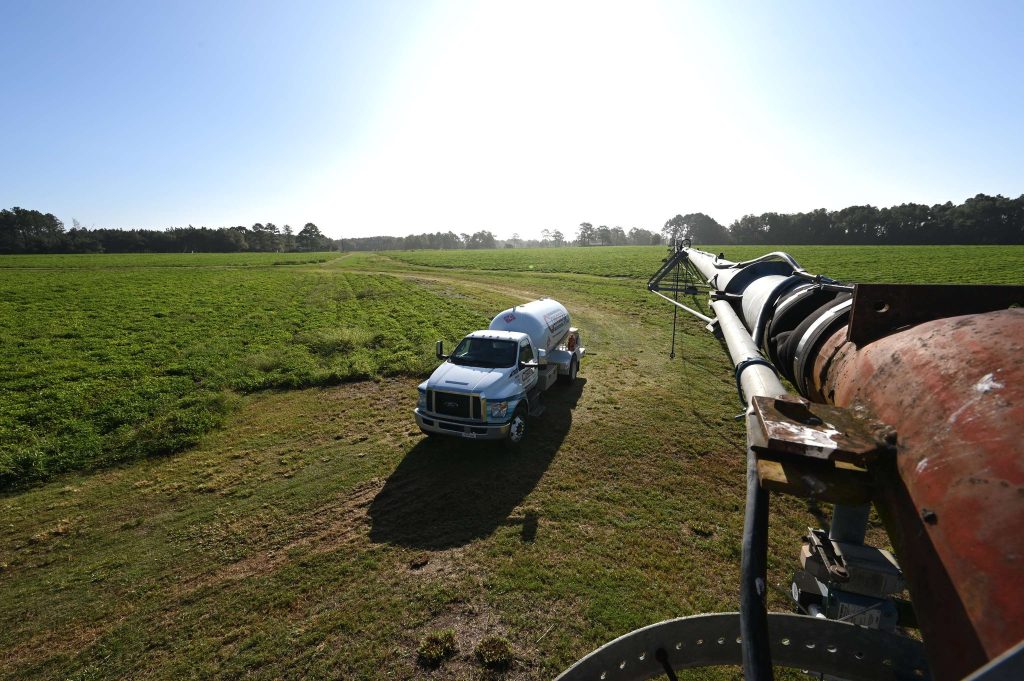
Oklahoma Farm Report’s Maci Carter got to speak with Propane Education and Research Center (PERC) Director of Agricultural Business Development Michael Newland.
PERC’s purpose is to promote the propane industry, one of the biggest challenges to that is providing safety training and safety training materials to the industry. Consumer outreach and new project development and investment are also on their list of duties.
A company in Nebraska is developing new EPA-certified engines that range from 2.4-liter engines to mid-twenty liter engines to be used in power generators and irrigation with money invested by PERC.
“We are very excited about that because it is going to be a very durable line of engines,” Newland said. “They are probably going to set the standard for durability of engines, so we are going to do a lot of promotion for that, probably in 2025.”
Another PERC-funded project gaining momentum is a soil steam unit in California. The base research was conducted by UC Davis and PERC’s funds were used to build a commercial applicator to be used to control weeds, soil nematodes, and fusarium, in lettuce, carrot, fresh flower, and strawberry fields.
Newland pointed out that geographical location has a lot to do with propane’s application in the ag industry. It is used throughout the Midwest to dry grain, and heat confinement buildings and greenhouses in colder climates. Irrigation and power generation are growing markets for propane.
“The electric grid isn’t getting any more stable these days, and prices continue to escalate, so we have a better story from a reliability standpoint than the electric grid, and from a cost standpoint, there are a lot of places where we can produce power from propane cheaper than they can deliver it to you across electric lines,” Newland said. “We have some great opportunities, and those are the types of things we focus on.”
PERC also has an incentive program for producers looking to purchase new, propane-powered farm equipment. More information about the incentive program can be found on the website.
“It is a great way to support the industry,” Newland said. “We are confident in all of our equipment. We are confident in the fuel, and for that reason, we offer some of our money back to get producers to try it.”
Propane has been deemed a clean alternative fuel by the government for many years, and unlike gasoline or diesel, propane tanks don’t require any secondary containment, such as double-walled tanks.
“We are very environmentally friendly,” Newland added. “We have irrigation motors right up against the Everglades National Park in Florida, which I would argue is the most regulated wetlands in the country. That is because it is safe. Just looking at spills, I think we set the standard for fuels, period.”
Propane checks a lot of boxes for clean fuels in emissions as well. “We mow grass with it. We have concrete-finish equipment that runs indoors when warehouses are being built, and if you think about it, what do you cook your food over outdoors? Our fuel. Most folks cook with a propane grill,” Newland pointed out. “Nobody is lining up to eat a steak off of a diesel or gasoline powered grill. We love where our fuel is from an environmental standpoint.”
He noted that hydrogen is a common point of discussion and how one has to consider key differences in hydrogen: how it is delivered, the pressure it is stored at, and how and where it is produced. “They are all labeled with colors to tell you how clean they are,” he said. “Honestly, propane is cleaner than most of the hydrogen that is out there today. Hydrogen is also incredibly expensive and not readily available. I think we are a ways away from making that a reality. It has some things to overcome in the pressure and storage of it than the cost of it.”
Renewable propane is available in the marketplace – most of it being used on-road in California where regulations are stricter. The renewable propane boasts less than half of the carbon intensity value of traditional propane, which already cleaner than most other fuels in the marketplace.
“We are clean today with our existing product, and we are getting cleaner with the renewable propane, and we will be cleaner with new pathways in the future,” Newland concluded.



















